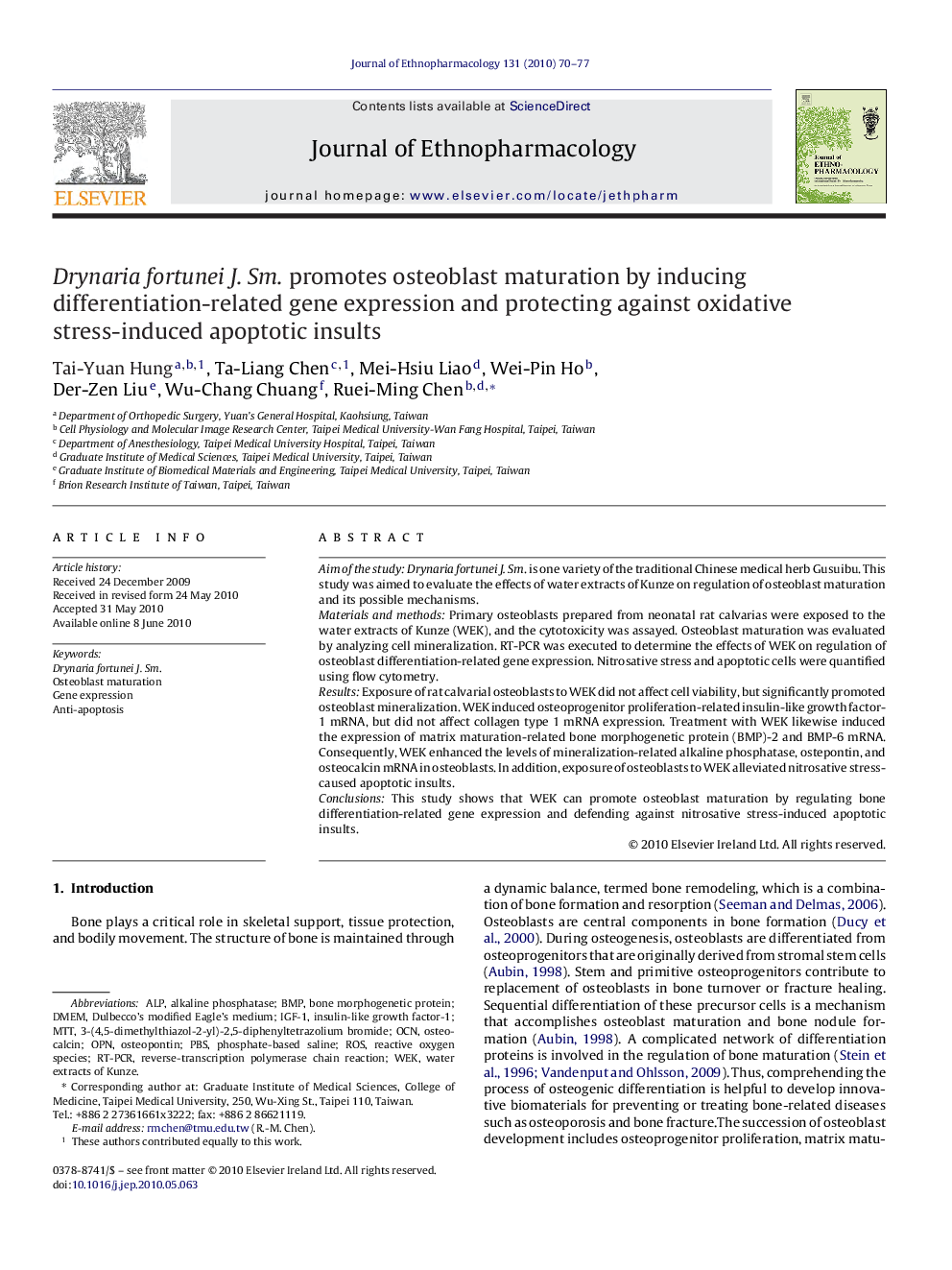| Article ID | Journal | Published Year | Pages | File Type |
|---|---|---|---|---|
| 2546210 | Journal of Ethnopharmacology | 2010 | 8 Pages |
Aim of the studyDrynaria fortunei J. Sm. is one variety of the traditional Chinese medical herb Gusuibu. This study was aimed to evaluate the effects of water extracts of Kunze on regulation of osteoblast maturation and its possible mechanisms.Materials and methodsPrimary osteoblasts prepared from neonatal rat calvarias were exposed to the water extracts of Kunze (WEK), and the cytotoxicity was assayed. Osteoblast maturation was evaluated by analyzing cell mineralization. RT-PCR was executed to determine the effects of WEK on regulation of osteoblast differentiation-related gene expression. Nitrosative stress and apoptotic cells were quantified using flow cytometry.ResultsExposure of rat calvarial osteoblasts to WEK did not affect cell viability, but significantly promoted osteoblast mineralization. WEK induced osteoprogenitor proliferation-related insulin-like growth factor-1 mRNA, but did not affect collagen type 1 mRNA expression. Treatment with WEK likewise induced the expression of matrix maturation-related bone morphogenetic protein (BMP)-2 and BMP-6 mRNA. Consequently, WEK enhanced the levels of mineralization-related alkaline phosphatase, ostepontin, and osteocalcin mRNA in osteoblasts. In addition, exposure of osteoblasts to WEK alleviated nitrosative stress-caused apoptotic insults.ConclusionsThis study shows that WEK can promote osteoblast maturation by regulating bone differentiation-related gene expression and defending against nitrosative stress-induced apoptotic insults.
Graphical abstractThe water extracts of Kunze can promote osteoblast maturation.Figure optionsDownload full-size imageDownload as PowerPoint slide
